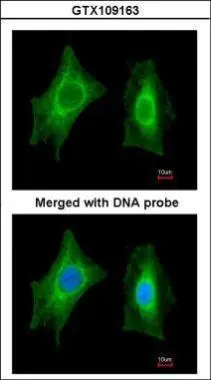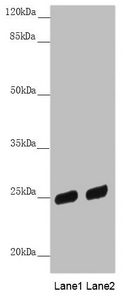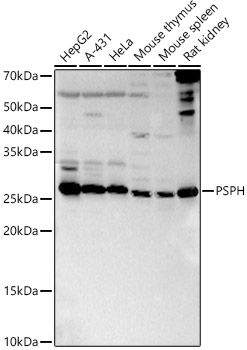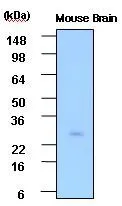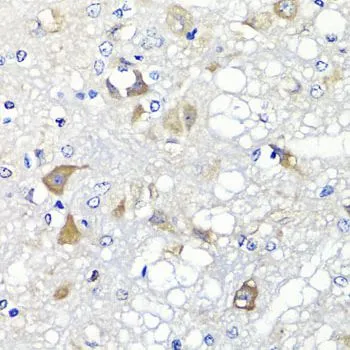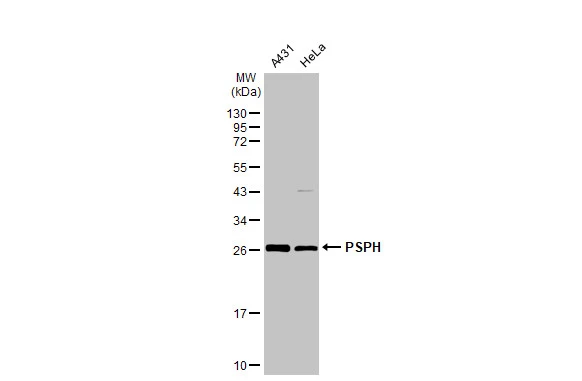
Various whole cell extracts (30 μg) were separated by 12% SDS-PAGE, and the membrane was blotted with PSPH antibody (GTX109163) diluted at 1:1000. The HRP-conjugated anti-rabbit IgG antibody (GTX213110-01) was used to detect the primary antibody.
PSPH antibody
GTX109163
ApplicationsImmunoFluorescence, Western Blot, ImmunoCytoChemistry
Product group Antibodies
ReactivityHuman
TargetPSPH
Overview
- SupplierGeneTex
- Product NamePSPH antibody
- Delivery Days Customer9
- Application Supplier NoteWB: 1:500-1:3000. ICC/IF: 1:100-1:1000. *Optimal dilutions/concentrations should be determined by the researcher.Not tested in other applications.
- ApplicationsImmunoFluorescence, Western Blot, ImmunoCytoChemistry
- CertificationResearch Use Only
- ClonalityPolyclonal
- Concentration1 mg/ml
- ConjugateUnconjugated
- Gene ID5723
- Target namePSPH
- Target descriptionphosphoserine phosphatase
- Target synonymsPSP, PSPHD, phosphoserine phosphatase, L-3-phosphoserine phosphatase, O-phosphoserine phosphohydrolase, PSPase
- HostRabbit
- IsotypeIgG
- Protein IDP78330
- Protein NamePhosphoserine phosphatase
- Scientific DescriptionThe protein encoded by this gene belongs to a subfamily of the phosphotransferases. This encoded enzyme is responsible for the third and last step in L-serine formation. It catalyzes magnesium-dependent hydrolysis of L-phosphoserine and is also involved in an exchange reaction between L-serine and L-phosphoserine. Deficiency of this protein is thought to be linked to Williams syndrome. [provided by RefSeq]
- ReactivityHuman
- Storage Instruction-20°C or -80°C,2°C to 8°C
- UNSPSC41116161

